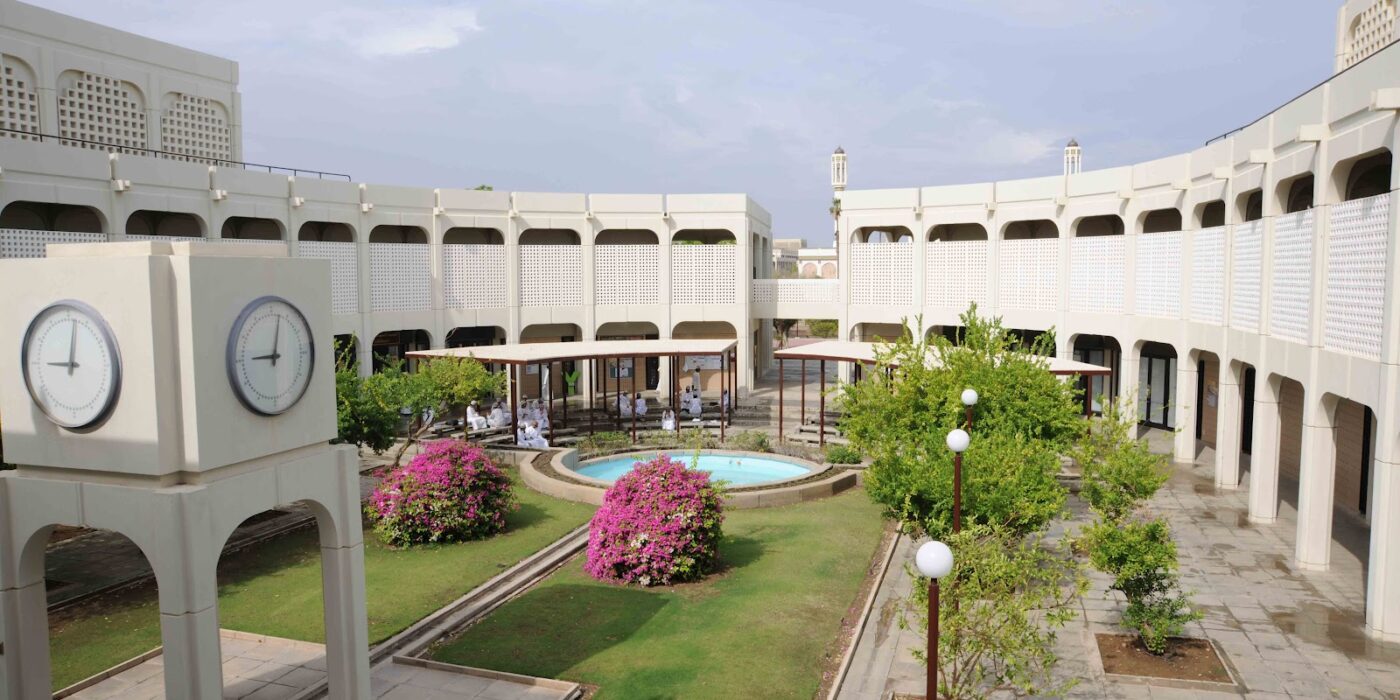Oman has made great strides in developing its higher education system and attracting students in recent decades. Omani universities are a mix of domestic institutions and affiliates of reputable foreign universities, many of which offer their programs in English. Sultan Qaboos University is the most important public university in Oman and the only Omani university to feature in the QS World University Rankings (ranked 454 in 2024). However, other universities and colleges in Oman also offer good quality education and offer accredited degrees through collaborations with leading universities in the UK, Germany and the US. In this article, we will review the state of higher education in Oman in a report and analysis, and review the admission requirements for universities in the country, the costs of education and student life, and the job opportunities for graduates (especially international students) in Oman.
Admission requirements for universities in Oman
The student admission system in Oman has different processes for domestic and international applicants. Omani students are usually admitted to public universities through the Higher Education Admission Center, based on their high school diploma average. Studying at public universities such as Sultan Qaboos University for Omanis is often financially supported by the government and does not cost much. In contrast, international students usually apply directly to the university of their choice and are required to pay tuition fees. The language of instruction in many Omani university courses is English; therefore, proficiency in English is an important admission requirement. An IELTS 5.5 or equivalent is required for undergraduate courses, and higher levels are required for postgraduate courses (e.g. IELTS 6.5 for a PhD). A 12th-year diploma or equivalent is also required for entry to an undergraduate degree. Admission to some specialized fields may require additional tests or a strong resume (for example, some Omani universities require GRE scores and three academic letters of recommendation for PhD admission).
The documents required for admission to study in Oman for foreign students usually include the following:
- High school diploma with valid transcripts
- English language certificate (such as IELTS or TOEFL, according to the level required by the course)
- Passport with sufficient validity (at least 6 months)
- Personal photos (usually 2 to 4 pieces)
- Motivation letter and, if necessary, academic letters of recommendation
- Proof of financial means or sponsorship to cover education and living expenses (such as a letter of financial support from parents or sponsors and bank account statements)
- Receipt for payment of the university application fee (this amount is around 100 to 150 Omani Rials, equivalent to 260 to 390, depending on the university)
After receiving admission, the international student must apply for an Omani student visa. Omani universities usually sponsor foreign student visas and initiate the administrative process. To obtain a visa, you must provide an official university acceptance letter, a completed visa application form, a medical certificate, identification documents, and proof of financial support. Omani student visas are usually issued for one year and can be extended annually until the end of the study period. It is important to note that Omani law has severely restricted international students’ work permits during their studies, with part-time employment only permitted under specific circumstances (such as course-related internships) and with permission from the Ministry of Labor. Therefore, applicants should ensure that they have the financial means to cover their study and living expenses before coming to Oman.
Cost of studying and living in Oman
Oman is more affordable in terms of tuition and living costs than some Western or neighboring countries (such as the UAE). However, the exact costs will vary depending on the university you study at, your major, and your lifestyle. In this section, we will look at the main costs, including university tuition, housing, living expenses, and insurance:
- University fees: Oman’s public universities are free or low-cost for Omani citizens, but international students must pay tuition fees. Tuition fees depend on the university and the field and can vary. On average, the annual undergraduate tuition fee for international students is around 1,000 to 3,500 Omani Rials (OMR) per year. Some programs at top universities may cost more; for example, Muscat University, a private institution, charges around 3,950 to 5,100 Omani Rials (equivalent to $10,260 to $13,246) per semester. Even at Sultan Qaboos University, tuition fees can reach around 7,000 Omani Rials per semester for non-scholarship courses. Therefore, specialized fields (such as medicine or engineering) and higher-ranked universities in Oman will cost more.
- Housing and dormitories: Most universities in Oman offer student dormitories to their students. Dormitories are usually shared apartments (two to four people) with full living facilities. Dormitory fees vary depending on the university and room type, and are usually added to the tuition fee. For example, at the German University of Technology in Oman (GUtech), a single dormitory costs around 640 OMR (~$1,660) per month, and a shared room costs around 340 OMR (~$880) per month. Some international students choose cheaper options instead of dormitories, such as renting a room with an Omani family, which costs an average of 150 OMR (~$390) per month. Renting a private apartment is also possible for students who want to live independently. Renting a one-bedroom apartment in the center of Oman’s cities averages about $500 per month, and in the suburbs, about $380 per month. This cost can be spread out if you share a roommate.
- Daily living costs: The cost of food, transportation, internet, and other daily expenses in Oman is considered average compared to the local income. In general, the average monthly living costs for a student (excluding housing) are estimated to be around 730-740 US dollars. Of course, this figure will vary depending on the individual’s lifestyle and the city of study; for example, the cost of living in Muscat, the capital of Oman, is usually slightly higher than other cities. Food and transportation in Oman are similar to other Gulf countries, and the use of online taxis (such as Uber) or private cars is more common than public transportation.
- Health Insurance: All international students in Oman are required to have health insurance to cover the costs of medical services. The university or the student’s sponsor will usually provide guidance on how to obtain insurance. The cost of health insurance varies depending on the coverage, but can cost a few hundred dollars per year. This insurance usually covers accidents and basic medical care, and is also required for a student visa.
In general, the cost of studying and living in Oman is relatively reasonable and “average”; university tuition fees are lower than in Western countries and even some of its wealthier neighbors, and living costs are moderate compared to other Gulf countries. However, proper financial management and awareness of expenses before departure are essential for every student to spend their studies with more peace of mind.
Job opportunities for graduates in Oman
The Omani government’s macro policies emphasize job creation for its citizens; the “Omanization” plan has prioritized hiring Omanis in many occupations. Accordingly, in some areas, such as human resources, administration, accounting, and clerical jobs, hiring foreigners is severely restricted or prohibited. International graduates who earn degrees from Omani universities face two main challenges in finding work in Oman: visa restrictions and competition with the local workforce within the framework of Omanization.
In terms of residency regulations, a foreign student cannot automatically stay in Oman after completing their studies unless an Omani employer applies for a work visa. Unlike some countries, Oman does not issue a post-graduation job search visa, and international graduates must leave the country if they do not receive a job offer. Therefore, job opportunities for these individuals are only available if they have a skill or expertise that is in demand in the Omani job market and an employer is willing to sponsor them. Fortunately, there is still a demand for skilled foreign workers in key Omani industries; for example, the IT, engineering, healthcare, and oil and gas sectors are still looking to attract international professionals. The Omani government has also targeted the creation of thousands of new jobs in areas such as transport, logistics, and IT in its recent programs, which could benefit skilled graduates (Omani and foreign).
Omani graduates have a better chance in the domestic job market due to the priority given to job creation for citizens. The official unemployment rate in Oman in 2024 was reported to be around 2.3%, indicating a relatively good employment rate (at least in macro statistics); however, the government is trying to reduce the dependence on foreign workers in the long term by empowering the local workforce. For international graduates, if they find a job in Oman, the working conditions will be similar to other foreign employees. The employer is required to obtain a work permit (Labor Card) from the Ministry of Labor and issue a work visa for them. This visa is usually 2 years and can be extended. There is also an age limit of 21 to 60 years for issuing a work visa in Oman. It is worth noting that studying in Oman alone does not lead to permanent residency or citizenship in this country, and long-term residency requires going through separate procedures (for example, continuous work residency, investment or marriage).
Despite all these challenges, some foreign graduates manage to find employment in Oman’s private sector every year. Usually, international companies or private institutions in Oman recruit from other countries for specific skills (such as petroleum engineering, new technologies, university professors, etc.). A significant number of non-Omani graduates also use the degree obtained in Oman to advance in other countries; for example, they go to Europe or the United States to continue their studies or return to their country with an international resume. Therefore, it can be said that studying in Oman provides the opportunity for a quality educational experience in a safe and developing country, but the post-graduation employment path for international students largely depends on individual skills, the needs of the Omani market, and receiving a job offer from an Omani employer.
In conclusion, Oman, as one of the stable countries in the Middle East, offers a growing environment in the field of higher education. Admission requirements for Omani universities are relatively easy for domestic students and come with government support, while international applicants must provide sufficient academic qualifications and language skills and go through the administrative process of obtaining admission and visa. In terms of costs, Oman is considered more affordable compared to many other study destinations; university tuition fees are in the middle range and the cost of living for students (including housing, food and other expenses) is relatively moderate. Of course, careful financial planning is important to cover tuition fees and requirements such as health insurance. In terms of job opportunities after graduation, Omani policies are designed to benefit the employment of its citizens, and foreign graduates need to find specialized job opportunities and obtain a work visa to stay in Oman. Overall, studying in Oman can be a valuable academic and cultural experience for international students, and the geographical and cultural proximity to Iran is also an advantage for Iranian students. However, employment prospects in Oman itself after completing their studies are more limited for foreign students than in classic immigration countries, and these individuals should have a clear plan for their future career path (both in Oman and internationally) from the beginning.
Sources: Official websites and up-to-date information on Omani higher education, including the International Student Admissions Guide, statistical data on tuition and living costs, and reports on Oman’s labor market and employment laws up to 2025, were used in the preparation of this article.

